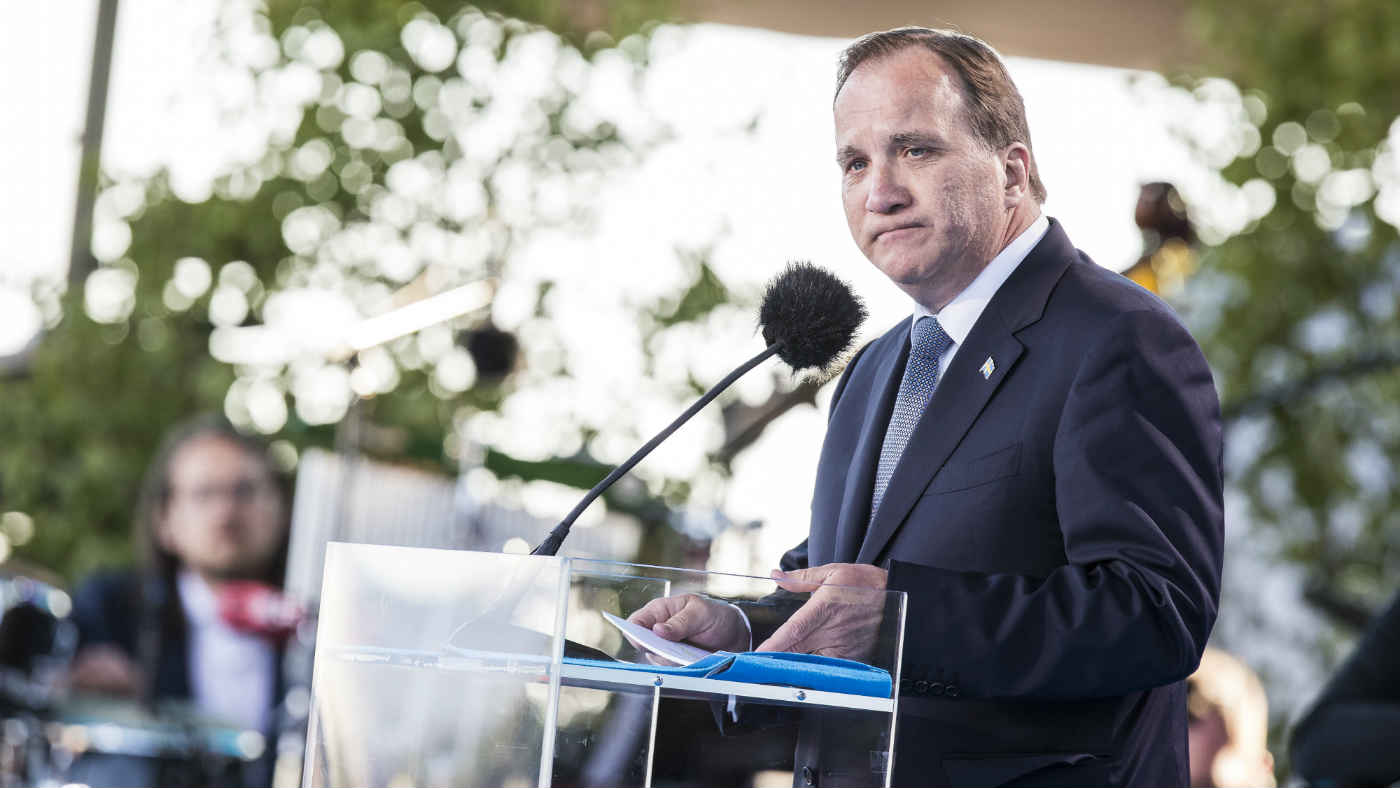Will a data leak bring down Sweden's PM?
After sensitive information is placed in foreign hands, Stefan Lofven's future hangs in the balance

A free daily email with the biggest news stories of the day – and the best features from TheWeek.com
You are now subscribed
Your newsletter sign-up was successful
A minority government plunged into crisis over a series of confidential leaks is a familiar scenario for British readers. However, this drama is taking place in Sweden and it is Prime Minister Stefan Lofven feeling the heat.
Earlier this week, the Social Democrat revealed that sensitive data from the Swedish Transport Agency, "a broad body that regulates everything from civil aviation to rail as well as issuing driving licences," says the Financial Times, had been leaked after a botched outsourcing deal with IBM in 2015.
The breach is believed to have included details of Stockholm underground system, bridges, undercover police officers, military staff and security services. One official compared it to "handing over the keys to the kingdom".
The Week
Escape your echo chamber. Get the facts behind the news, plus analysis from multiple perspectives.

Sign up for The Week's Free Newsletters
From our morning news briefing to a weekly Good News Newsletter, get the best of The Week delivered directly to your inbox.
From our morning news briefing to a weekly Good News Newsletter, get the best of The Week delivered directly to your inbox.
It has already cost two members of Lofven's cabinet their jobs and parliament will vote on the fate of a third after the summer recess. Meanwhile, ministers are under pressure to explain why they only informed the public after the leak was reported in the media.
“The government has known about the leaks for nearly two years. We demand they take responsibility,” said Jimmie Akesson, leader of the Sweden Democrats, the third-biggest party in parliament.
The leak has added to the already-prevalent view that Lofven's minority coalition, one of Europe's few centre-left governments, is one of the weakest in recent history.
Elections aren't due for another year, but "economists and political analysts say the prime minister will probably need to resign, or call an early election, if Sweden is to move on", says Bloomberg.
A free daily email with the biggest news stories of the day – and the best features from TheWeek.com
What was the breach?
The first indication that something was amiss came in January, when Maria Agren, general director of the Transport Agency, was fired, although no reason was announced to the public.
It has since emerged that she had, despite warnings from Sapo, the Swedish national security service, agreed to award the agency's IT maintenance contract to IBM, which then gave the work to subcontractors in the Czech Republic and Serbia.
"Agren ignored three key security laws - the National Security Act, the Personal Data Act and the Publicity and Privacy Act," says the BBC.
The decision meant foreign technicians who did not have the usual security clearance could access sensitive information.
According to Swedish newspaper DN, three IT workers in the Czech Republic were able to access two confidential police databases used for driving licence applications.
Details included criminal records and police files on suspected criminals who in some cases did not know they were being investigated, says The Local.
Security expert Johan Wiktorin told DN: "You have opened up the possibility of accessing secret information that can be used against individuals, but also by organised crime which can make money from selling the data. You can also manipulate it by deleting or adding information.”
In addition, Micael Byden, Sweden's highest ranked professional military officer, said there was a risk that information about military vehicles and people with protected identities had also been leaked.
How has it threatened the government?
Three members of Lofven's government - interior minister Anders Ygeman, infrastructure minister Anna Johansson and defence minister Peter Hultqvist - have admitted they knew about the scandal before it came to light.
Ygeman and Johansson have since stepped down, while The Alliance – a coalition of the Moderate Party, the Centre, the Christian Democrats and the Liberals – are pushing ahead with a no-confidence motion against Hultqvist following the summer recess.
"We welcome the dismissal of Anna Johansson and Anders Ygeman. They bear a large responsibility for the security crisis Sweden has ended up in. But Peter Hultqvist bears the same responsibility," Liberal Party Leader Jan Björklund told TT newswire, reports the Local.
What happens next?
Calls for an early election have so far been rejected. Lofven said he had to "take responsibility for the country" and that "it wouldn't serve Sweden to throw the country into a political crisis."
However, opposition politicians aren't satisfied and "Lofven's government remains far from secure", says Bloomberg.
What happens to Hultqvist after the recess may prove key. Lofven says it is "completely irresponsible" to have a vote on the defence minister, saying he did not have "responsibility for the authority where the shortcomings occurred".
Hultqvist is also popular across the political spectrum and keeping him in place will "make the motion more difficult for the opposition", says the Swedish tabloid Aftonbladet.
According to the FT, Lofven is gambling that the "opposition will find itself conflicted over the popular Hultqvist at a time of intense security worries in the Baltic Sea area with Sweden gearing up to conduct its biggest defence exercise in decades this summer just as Russia holds a larger training manoeuvre in Belarus".
But Christian Democrat leader Ebba Busch Thor suggested the opposition would be unwavering, writing on Twitter that "confidence in the Defence Minister is exhausted. The Prime Minister is not taking responsibility – as such we'll ask for responsibility in the [Swedish parliament]."
Danske Bank chief economist for Sweden Michael Grahn also said it was likely Hultqvist would not survive the motion of no confidence.
If that were to happen, then it could be possible that Europe would lose one more centre-left government.